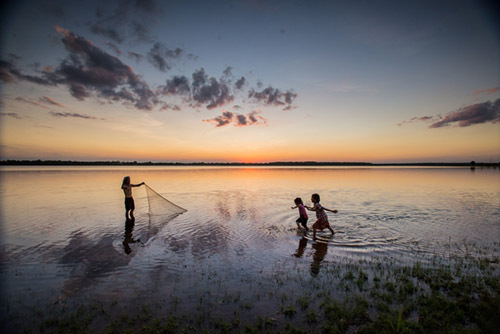- Autumn 2024
- The Children’s Court’s power over children outside NSW

DN v Secretary, Department of Communities and Justice [2023] NSWCA 321
A recent judgment of the Court of Appeal of the Supreme Court of New South Wales has held that the Children’s Court New South Wales (‘the Children’s Court’) has no power to make orders in respect of children placed outside of the state. The decision has implications for the Children’s Court and the Department of Communities and Justice (‘DCJ’), in respect to the placement of children in out-of-home care either overseas or outside of New South Wales, and for the out-of-home care sector, which already faces difficulties in recruiting carers for children. In recognition of the significance of this decision, a Bill was introduced to the New South Wales Parliament on 13 March 2024 seeking to give the Children and Young Persons (Care and Protection) Act 1998 (‘Care Act’) extraterritorial application.
Background
In 2010, the Secretary of the DCJ brought an application under the Care Act in respect to two children of Aboriginal descent, then aged one and two years old respectively. In 2017, the Minister for Families and Communities, who had parental responsibility for the children, placed them with carers who were citizens of the United Kingdom, after attempts to place them with a culturally appropriate situation failed.
The children travelled with their carers to the UK, returned briefly to Australia, then returned to the UK, and they have not been back to Australia since July 2020. The appellant was the mother of the children, who brought an application to the Children’s Court during the period in which the children had briefly returned to Australia, seeking parental responsibility for her children. At a later stage, the carers also filed an application seeking the same relief.
The proceedings below
The Children’s Court heard both of the above applications and made final orders allocating parental responsibility between the Minister and the carers, effectively allowing the children to reside with the carers, wherever they chose to live. The appellant applied to the Supreme Court for judicial review of the decision on two grounds: firstly, that the Children’s Court lacked the power to make orders with respect to children who were not in New South Wales at the time the orders were made, and secondly, that, assuming the Children’s Court did have such power, it could not make orders allocating parental responsibility to the carers, who were not residents of New South Wales.
The primary judge dismissed both these grounds, concluding, firstly, that the Children’s Court had such power, relying on s 4(c) of the Care Act: at [123]–[124], and secondly, that as a matter of statutory construction, the Care Act did not impose a limitation on the persons who could be considered ‘suitable’ for parental responsibility under the Act: at [150]–[154].

Determination of the issues on appeal in the Court of Appeal
On appeal, the court (Basten AJA, Mitchelmore and Stern JJA) considered both of the grounds determined by the primary judge, as well as a further ground concerning the powers of the Children’s Court to vary or rescind orders under s 90 of the Care Act. The appeal was upheld by Basten AJA, with Mitchelmore and Stern JJA agreeing.
As to the scope of the Children’s Court’s power to make orders with respect to the children who were not in New South Wales at the time the orders were made, the court found that the Care Act did not empower the Children’s Court to operate extraterritorially, nor was it intended to be read so broadly as to strain to achieve a result beyond the ordinary meaning of the language of the statute: at [50] and [77].
While the powers included in s 72 of the Care Act were broad, in allowing the Children’s Court to make orders in respect of children who were in need of care and protection at the time the application was made but not at the time the application was determined, its application was to be constrained by the ‘localising rule’ in s 4 of the Care Act, which limited the Children’s Court’s geographical reach: at [66] and [73].
Further, the court held that it was implausible that Parliament, in confining the Children’s Court’s territorial jurisdiction to New South Wales, intended to confer powers to make orders in respect of children who were neither present nor ordinarily living in New South Wales, powers beyond what are enjoyed by the Supreme Court in its parens patriae jurisdiction: at [71].
As to whether the Children’s Court could allocate parental responsibility to carers outside of New South Wales for the purposes of s 79(1) of the Care Act, the court found this ground should also be upheld for the same reasons as for the first ground, with the additional factor that Aboriginal placement principles required the choice of a carer who could ensure continuing contact between the child and his or her Indigenous family, community, and culture. This supported the finding that the Children’s Court did not have powers with respect to children not within New South Wales: at [83].
As to whether the Children’s Court had jurisdiction to vary or rescind existing orders in respect to children who subsequent to those orders, move outside of NSW, the court found the Children’s Court could make such an order in circumstances where it would prevent the officer or person, usually the Minister, with parental responsibility from effectively exercising their function: at [77]. In the result, the appeal was allowed and the orders of the Children’s Court allocating divided parental responsibility between the Minister and the carers quashed.
Legislative intervention
On 13 March 2024, the Minister introduced a Bill to Parliament in response to this decision. The Children and Young Persons (Care and Protection) Amendment Bill 2024, as read, seeks to amend the ‘localising rule’ in s 4 of the Care Act to give the Act extraterritorial application to children and young persons not present in New South Wales provided they have a sufficient connection to New South Wales. At the time of writing, it remains before the Legislative Assembly. BN

